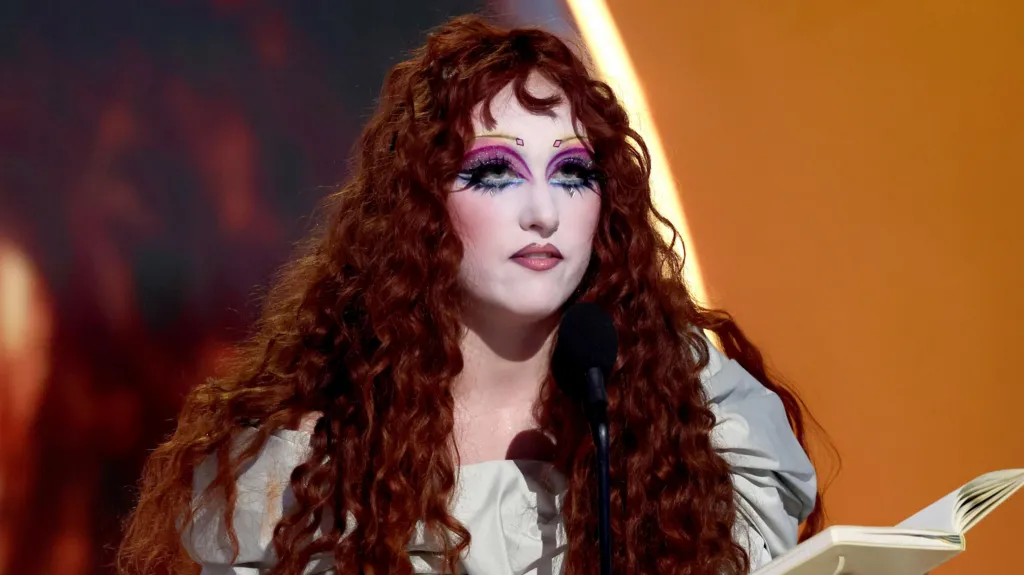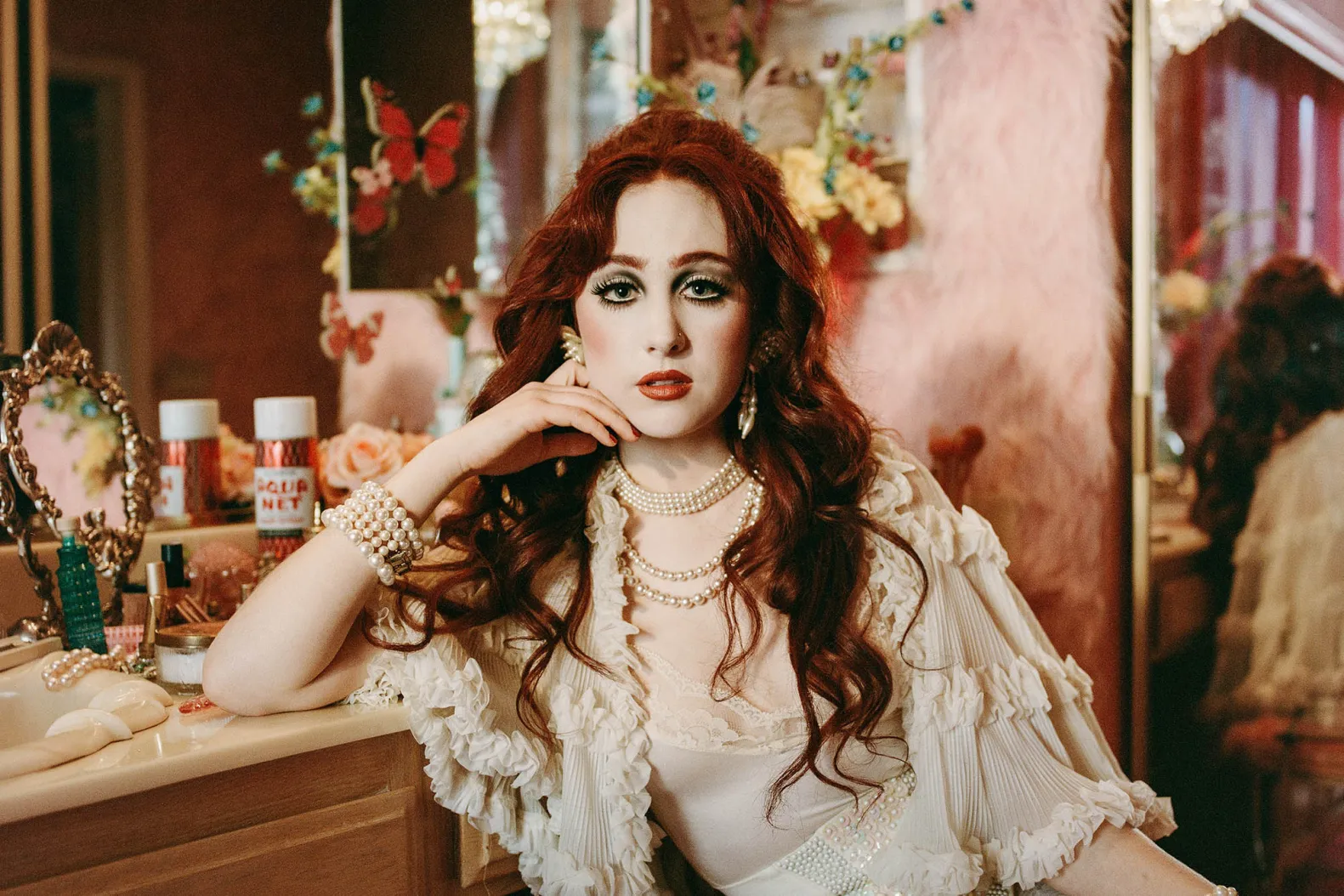By Maria-Nefeli Andredaki,
Chappell Roan has been doing music since forever, but it was in 2024 when she had her big breakthrough moment and started being recognized for her unmatched talent. With sudden fame, however, comes sudden change and the singer is “notorious” for speaking out about her struggles with the spotlight. The word notorious is used very purposefully here, since Roan has been heavily criticized for her stance against abusive and violating behaviors that famous artists have to face, an experience that has been, unfortunately, normalized. The following interview I will be mentioning, along with her overall internet presence, makes her, in my opinion, a very rare and valuable role model for younger generations of today’s society.
Chappell Roan recently went on the podcast “Call her daddy”, hosted by interviewer Alexandra Cooper, where she opened up about her past, opinions, personal life and the effects this sudden rise to fame has had on it. One of the most memorable moments from the episode was when the artist was asked to talk about her politics. She responded by saying “are you looking to me for some political answer? I’m a pop star. I wish I had the answers, I wish the president was a pop star, but she’s not”.
Chappell Roan was previously heavily pressured to endorse one of the two main candidates for the USA presidential elections, to which she had said in another interview “There’s problems on both sides. I encourage people to use your critical thinking skills, use your vote —vote small, vote for what’s going on in your city”. This speaks volumes on the value that is put on public (and random) people’s opinions. It is understandable to want powerful people to use their power for good, but a celebrity’s opinion is admittedly a poor substitute of personal research, education and critical thinking. Plus, if you take a closer look at Roan’s lyrics, statements, charity work and activism, it is clear as day that she is involved in politics and fights for feminism, inclusivity and universal equality.

Another important moment from the podcast was when the singer admitted that her younger self would not believe this was her life now. Chappell Roan described her younger self as someone very angry, restricted and depressed due to lack of understanding from her environment. She also mentioned that in her teenage years, she was seen as “pretty” but not attractive, which affected her self-image and relationships. “I always did want to dress up and be super girly, or be really tomboy. I just wanted to be free,” she said. “But I just didn’t ever think it would really happen. And now that it has, I don’t think [my younger self] would believe it at all. I don’t think she could ever believe that this is what I do”. One of the singer’s very own role models growing up used to be Hannah Montana, the Disney character who lived a double life as superstar and girl-next-door. Now, she says, it is a great pleasure to be able to express herself freely through her artistry but also live her personal, everyday life as a more private, humble person.
In a world where beauty standards, discrimination and lack of authenticity are the norm, Chappell Roan is a true trailblazer and a light that brings some hope of change. Younger people are able to see themselves, believe in their talent and know exactly what they’re getting into when choosing to become a known artist. For regular people like me, she is a breath of fresh air in an industry so corrupted and I just can’t wait to see the extent of her artistry.
References
- Chappell Roan Opens Up About Her ‘Depressed, Angry’ Childhood in the Conservative Midwest: ‘I Felt So Restricted’. Realtor. Available here
- Chappell Roan Says Her Younger Self Wouldn’t ‘Be Able to Register’ the Person She’s Become. Rolling Stone. Available here
- 5 Key Takeaways From Chappell Roan’s Guest Appearance on Call Her Daddy. Vogue. Available here




